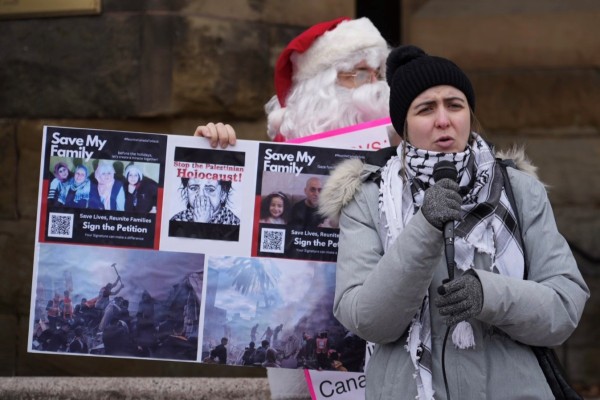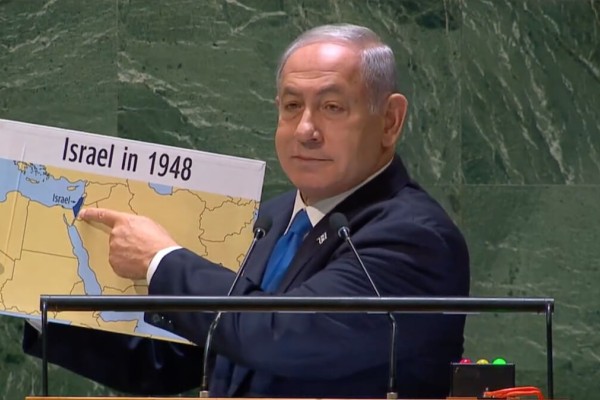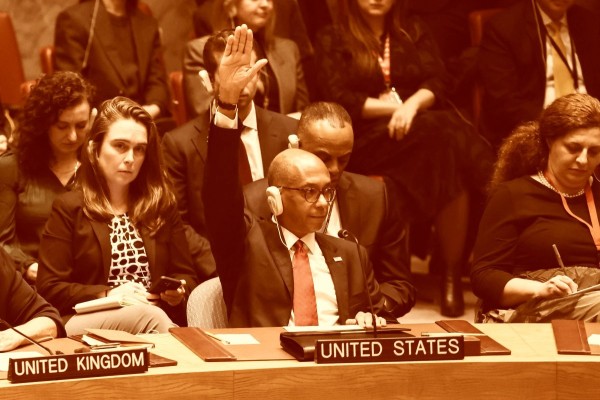On CBC media capitulation and HonestReporting Canada
The broadcaster’s repeated caving to a highly biased pro-Israel advocacy group undermines its claims to journalistic integrity

Photo by Lorna Taylor/Flickr
Just over a month ago, the Jewish Faculty Network (JFN) and the Canadian Foreign Policy Institute (CFPI) raised concerns regarding the censorship of Jarrett Martineau’s CBC Indigenous music program Reclaimed. Martineau played a song called “River 2 the Sea,” and expressed “sonic solidarity” with the people of Palestine. Under pressure, the episode disappeared from the show’s website.
We know that CBC was under pressure because of campaigning from HonestReporting Canada (HRC), a pro-Israel media watchdog, that issued an “action alert” to their 60,000 newsletter subscribers when the show aired, and claimed victory when the intro was removed.
The show has quietly returned to the website but Martineau’s expression of “sonic solidarity” has been edited out along with the song title. Despite the fact that nearly 20,000 letters were sent by concerned Canadians about the censorship—a response triggered by the JFN and the CFPI’s pushback efforts—CBC has issued no explanation or apology for removing the show, and included no statement of clarification regarding the alterations to the reinstated version. Nor have they acknowledged the outrage that flowed from their censorship.
Why did HRC’s pressure campaign work, while JFN and CFPI’s did not?
There are two important takeaways from this situation, which has repeated itself against different targets of HRC since October 7, 2023. The first is that HRC’s complaints and pressure campaigns aimed at CBC do not concern journalistic integrity, but rather make accusations of antisemitism if media strays from Israeli state talking points.
Second, these attacks by HRC are collateral attacks that are based in a broader, conservative push to privatize social infrastructure like the CBC. Therefore, we must defend the need for public media institutions while also demanding radical reform, or else fall into the regressive populism of the right.
Accountability vs. pressure campaigns
HRC’s complaints about the episode of Reclaimed exemplify a practice of campaigning and calls for censorship that HRC has escalated since October 7, 2023. They refute any data about the death toll or damage of Israeli bombardments unless it is issued by Israel. They refute any reporting focused on the Israeli bombardments of Gaza unless it is framed by the death count of Israelis on October 7. They characterize all criticism of Israel as antisemitic and all demonstrations against the Israeli bombardment of Gaza as Hamas-affiliated and therefore endorsing October 7. Analysis of Israel’s military occupation and colonial status, or questions about the legitimacy of Israel as an ethno-nationalist state, are met with denial based on the claim that Jewish people are Indigenous to Israel, therefore beyond reproach.
HRC openly takes this direction from Israel itself, pledging to act as the country’s “sword and shield” in the media landscape of Canada, while also claiming to operate with autonomy and objectivity. How can HRC stridently declare its advocacy for Israel, when also claiming to be an “independent grassroots organization promoting fairness and accuracy in Canadian media coverage of Israel and the Middle East”? Its mission is not only to defend Israel; its personnel are embedded with the Israeli state. For example, one member is a former executive director for Hasbara Fellowships Canada, an organization that is co-sponsored by the Israeli Foreign Ministry, whose stated mission is to train and support Zionist activists on college campuses by sending them on trips to Israel.
HRC’s state-aligned raison d’être should not be treated as the goal of Canadian media organizations and broadcasters. The phrase “River 2 the Sea” on Reclaimed was characterized by HRC as antisemitic, thereby painting Martineau with the same brush. But HRC is far from the sole and ultimate authority on the meaning of this widely mobilized call for liberation, and deferring to their definition has serious implications and consequences for reporters and the way news is reported.
Recently, The Breach published a piece by a whistleblower from CBC, written under a pseudonym as a bulwark against pervasive threats to employment and job-seeking that have been launched against people voicing criticism of Israel. The writer recounts that there were 19 separate incidents of HRC targeting CBC journalists within a six-week period in the wake of October 7. In addition, she notes that HRC claimed responsibility for firing two Palestinian journalists at other outlets, and remarks on the “chilling effect” of this power.
She writes, “Hosts and senior colleagues would frequently cite the threat of complaints as a reason not to cover Israel-Palestine,” and notes that journalists would be called to account for their reporting based on HRC’s claims of bias, including at least one instance in which a casualized worker had their contract prematurely terminated.
This is a revelatory essay by a CBC producer giving an insider account of how the broadcaster whitewashed Israel’s horrors in Gaza.
— Martin Lukacs (@Martin_Lukacs) May 16, 2024
Unheard of scrutiny of Palestinians, a push not to say “genocide,” secret blacklists, and discipline for speaking out. https://t.co/madfe3tA81
Although HRC’s campaigns against CBC have dramatically increased since October 7, these efforts significantly predate the current war in Gaza. In June 2022, a Palestinian student journalist, Rahaf Farawi, published a piece on CBC journalists’ experiences with the “Palestine exception” and found a pattern that strongly echoes the one described in The Breach’s whistleblower’s account.
Farawi reported that CBC expects a backlash for featuring Palestinian voices in their coverage. One CBC journalist told her, “It immediately escalates to the highest levels, and they have to deal with it. There is a lot of fear of backlash from the pro-Israel lobby, [especially] people from HonestReporting.” Accordingly, as the article traces, if complaints were not dealt with in a satisfactory way, HRC escalated the situation to a public review from the ombudsman’s office.
HRC not only intervenes in the nature of coverage, but determines what will be covered at all when it comes to Israel-Palestine through a mechanism of self-censorship that it drills into its targets. Another journalist told Farawi, “It’s quite blatantly said, ‘Oh, if we do that, the HonestReporting people are going to come after us’… Not to say that they always necessarily see that as an impediment. But it is clearly on their mind. That notion of do we have the capacity and the resources to, like, deal with that backlash right now? Or maybe we throw in another voice to quote, unquote, balance it out?”
Integrity in reporting
CBC was quick to respond to the whistleblower article in The Breach. The next day, Brodie Fenlon, the general manager and editor-in-chief of CBC News, published a blog post contending that the article’s “broad conclusions are not true.” Yet Fenlon’s response gives the impression of an exercise in PR damage control, failing to address the whistleblower’s main concerns, including the substantial impact of HRC on the operations of the newsroom.
Instead, he takes recourse to a version of the dubious “two sides” argument that ignores any asymmetry between those on the giving and receiving ends of colonial domination and military occupation, coupled with remarks about the complexity and contentiousness of the issues that make them supposedly immune to critical coverage.
He writes, “Our coverage of this story will never be able to satisfy everyone’s expectations because the story itself is so personal and divisive.” Yet satisfying audience expectations should not be the mandate of journalism. The goal should be the pursuit of truth, however uncomfortable it may make some, and even despite how the majority of people feel.
The changes that must be made to the CBC, then, could be made in ways that do not contribute to the right-wing backlash against public institutions that are calling to defund the CBC, but to hold the CBC to higher standards of journalistic integrity.
CBC’s repeated caving to a highly biased pro-Israel advocacy group like HRC takes up a place within the larger context of right-wing populism on the rise in Canada today. According to a perceived, implicit bargain, CBC’s decision to appease Israel’s defenders is a trade-off for a de-escalation of existential threats to the public broadcaster. Yet, in this, CBC is making a dire miscalculation.
Despite its several capitulations to HRC, highlighted by the Martineau affair, the whistleblower’s revelations, and Farawi’s pre-October 7 investigation, CBC is still accused by most conservative politicians as being hopelessly unfair in its coverage of Israel. The conclusion to be drawn is that no amount of appeasement will ever be enough. Placation is an illusion. The endlessly repeated rallying cry to “stop wasting taxpayer money” on an allegedly intractably left-wing news institution functions for the right as a far too valuable instrument for galvanizing their base.
This should provide reason enough for CBC to discontinue its effective worst-of-both-worlds policy and quit bowing to pro-Israel forces of censorship. But this fight is about more than Israel-Palestine. In HRC’s attack against Martineau, they did not attack only his solidarity with Palestinians, but his allied critique of Canada as a settler colonial state. The broader collateral of losing this battle with HRC is the sum loss of struggles for justice across all of society. The right will not stop at Palestine. But this is the present litmus test against racism in Canada today.
Jonah Corne is an associate professor in the Department of English, Theatre, Film and Media at the University of Manitoba, where he serves as the coordinator of the Film Studies program.
Shiri Pasternak is a professor at Toronto Metropolitan University in the Department of Criminology.










